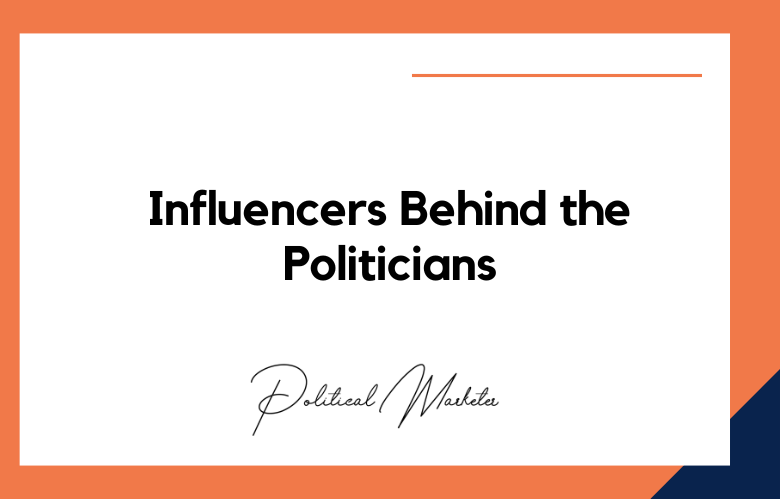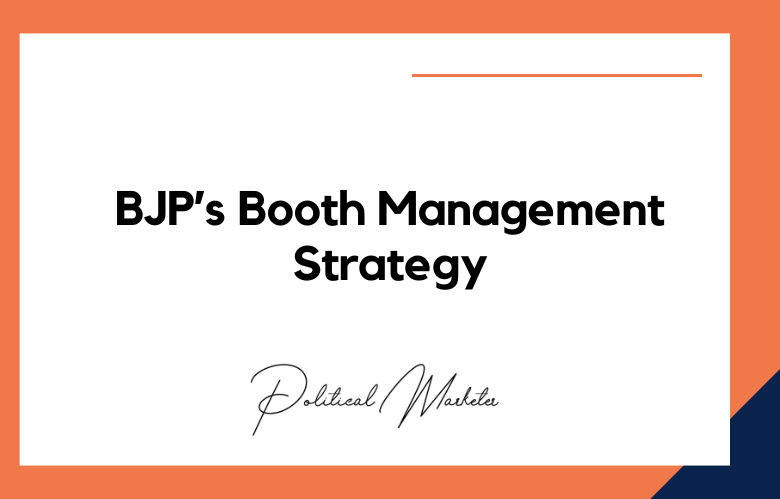The world of politics is constantly evolving, embracing new technologies to make campaigns more effective. One of the most significant developments in recent years is using artificial intelligence (AI) and micro-targeting. With the power to crunch vast amounts of data and personalize messaging, these tools offer unprecedented opportunities for political candidates to connect with voters.
However, they also raise important ethical and practical questions. This post will explore what AI and micro-targeting mean for political campaigns today.
Firstly, let’s define what we mean by AI and micro-targeting. AI refers to computer systems that can perform tasks that typically require human intelligence, such as learning, reasoning, and problem-solving.
In a political context, AI can analyze data on voters’ profiles, behaviors, and preferences to identify patterns, trends, and insights that can inform campaign strategies.
The Rise of AI: Transforming Political Campaigns through Micro-targeting
In recent years, political campaigns have undergone a significant transformation due to the rise of artificial intelligence and its implementation in micro-targeting strategies.
This new technology has enabled campaigns to reach voters more personally, tailoring their messages and advertisements to specific demographics based on extensive data analysis.
Micro-targeting has become a powerful tool for politicians and their campaigns, allowing them to effectively reach potential voters with messages and policies that resonate with their interests and values.
AI algorithms analyze and identify behavior patterns and preferences by harnessing vast amounts of data, such as social media activity, online browsing behavior, and demographic information, enabling campaigners to craft messages that speak directly to individual voter concerns.
Unmasking the Efficacy of AI in Political Micro-targeting
In recent years, using Artificial Intelligence (AI) in political micro-targeting has become increasingly prevalent. Micro-targeting refers to using data analytics and targeted messages to appeal to specific groups of individuals.
AI is crucial in this process as it enables the analysis of large datasets, identifies patterns and trends, and automates the delivery of messages to specific groups of individuals.
The efficacy of AI in political micro-targeting has been a topic of much debate and scrutiny. Despite its numerous benefits, there are concerns regarding ethical implications such as privacy violations and manipulation of information. Moreover, critics often point to the lack of transparency of these algorithms and the potential for bias in the data sets used.
How AI Revolutionizes Political Campaigns: The Power of Micro-targeting
As technology advances, artificial intelligence (AI) has revolutionized various industries, including politics. In particular, micro-targeting has transformed political campaigns, providing a powerful tool for politicians to reach out to specific groups of voters.
Micro-targeting uses data analysis and AI algorithms to identify groups of individuals with common characteristics, such as age, gender, location, interests, and political affiliation.
By understanding the interests and preferences of these groups, political campaigns can tailor their messages and strategies to appeal to their target audience.
Precision Politics: AI and Micro-targeting in Modern Campaigns
Over the past decade, political campaigns have increasingly embraced micro-targeting to reach voters more precisely than ever before.
With the proliferation of data mining, predictive analytics, and machine learning algorithms, campaign strategists can now leverage vast amounts of personal data to create targeted messages that resonate with specific segments of the electorate. This approach has been dubbed “precision politics,” revolutionizing modern campaigns.
AI and machine learning technologies have played a critical role in the rise of precision politics. By analyzing vast troves of data, these tools can identify patterns and trends that human analysts might miss.
With machine learning algorithms, patterns are identified faster and more accurately, and the resulting insights can be used to build highly effective micro-targeting campaigns.
Harnessing Artificial Intelligence for Precision Political Messaging
Artificial Intelligence (AI) has become increasingly prominent in political messaging, particularly in recent years, as online campaigning has become more prevalent.
AI refers to machine learning and natural language processing, enabling computers to understand, interpret, and respond to human language and behavior.
AI systems can be programmed to analyze vast amounts of data from social media platforms, news outlets, and other sources to identify patterns in data related to a particular candidate, issue, or demographic group.
Based on this analysis, AI-powered political messaging can be personalized to appeal to specific groups of voters, with messages tailored to their interests, beliefs, and concerns.
The AI Advantage: Unveiling the Science Behind Micro-targeting in Politics
Political campaigns have been around for centuries, and the methods used to reach voters have evolved with technology. One of the latest and most potent tools in a politician’s arsenal is micro-targeting using artificial intelligence (AI).
Micro-targeting is breaking down a population into small groups based on demographics and psychographics and tailoring ads and messages to appeal to those groups.
What makes AI so valuable in this process is its ability to process vast amounts of data in real time.
With AI, political campaigns can analyze numerous data points like voting history, online activity, social media interactions, and more to develop a deep understanding of individuals’ interests, beliefs, and actions. This information helps campaigns create highly targeted messages that resonate with specific segments of the electorate.
From Data to Votes: Exploring the Role of AI in Political Micro-targeting
Political micro-targeting has been gaining increased attention within politics due to the recent data-driven advancements in artificial intelligence (AI).
Micro-targeting involves utilizing big data and machine learning algorithms to develop more accurate voter profiles, which can then be used to tailor political campaigns to particular population segments with high precision.
This approach has been gaining traction on both sides of the political aisle in many countries worldwide due to its ability to maximize the effectiveness of political advertising while minimizing waste and redundancy.
AI-powered micro-targeting is driven by the vast data available in the digital age, including demographic information, social media activities, online browsing habits, and purchasing behavior.
Conclusion:
AI and micro-targeting have the potential to revolutionize political campaigns and transform the way that candidates connect with voters.
By analyzing vast amounts of data and personalizing messages, these tools can help campaigns be more effective, efficient, and engaging. However, there is also a need for caution and critical thinking regarding the ethics and implications of these technologies.
As we navigate the changing landscape of politics, we must strive to use AI and micro-targeting responsibly and transparently. Ultimately, the success of political campaigns depends not just on technology but on the relationships, trust, and values they are built upon.
Call: +91 9848321284
Email: [email protected]
Frequently Asked Questions (FAQs)
What is micro-targeting in political campaigns?
Micro-targeting is a data-driven strategy where political campaigns deliver highly personalized messages to specific voter segments based on demographics, behavior, interests, and values.
How does artificial intelligence enhance micro-targeting?
AI analyzes vast datasets, identifies patterns, predicts voter behavior, and optimizes message delivery to improve persuasion and voter turnout at a granular level.
What types of data are used for AI-based political micro-targeting?
Voter rolls, social media activity, browsing history, past donations, survey responses, geo-location, and consumer data are commonly used.
Why is AI important for modern political campaigns?
AI improves campaign efficiency, speeds up decision-making, enhances targeting accuracy, and reduces costs through automation and predictive analytics.
Can AI predict how individuals will vote?
Yes, AI models can estimate voter preferences and likely behaviors using predictive algorithms trained on historical and behavioral data.
How are social media platforms used in AI-driven micro-targeting?
Platforms like Facebook, Instagram, and X allow campaigns to segment audiences and serve custom messages using AI-based ad delivery systems.
What is psychographic profiling in political campaigns?
It involves analyzing personality traits, values, and emotional triggers to tailor messages that resonate deeply with individual voters.
Are chatbots part of AI-powered political strategies?
Yes, chatbots handle voter queries, collect feedback, distribute personalized content, and automate conversations during campaigns.
What role does sentiment analysis play in micro-targeting?
AI-driven sentiment analysis scans online conversations and media to gauge public opinion, allowing campaigns to adjust tone and timing.
Can AI help with real-time campaign adjustments?
Absolutely. AI systems can adapt targeting strategies on the fly based on live data from surveys, media coverage, or social sentiment.
Is micro-targeting ethical in political advertising?
It’s debated. While it can improve relevance, concerns include privacy invasion, manipulation, lack of transparency, and digital inequality.
How do campaigns avoid data misuse while micro-targeting?
By complying with data protection laws, anonymizing data where possible, and clearly disclosing data collection practices to voters.
What are lookalike audiences in AI-driven micro-targeting?
They are groups that share characteristics with an existing audience, allowing campaigns to expand reach to similar yet untapped voter segments.
Can AI-driven micro-targeting influence voter turnout?
Yes, personalized reminders and issue-specific calls to action can motivate voters who might otherwise stay home.
How does A/B testing work in political micro-targeting?
AI helps test variations of messages, formats, and delivery channels to determine which versions yield the best engagement or conversion rates.
What is voter scoring and how does AI support it?
Voter scoring ranks individuals based on likelihood to support or oppose a candidate. AI refines this scoring using dynamic and contextual data.
Are mobile apps used in AI-based micro-targeting?
Yes, campaign apps collect user behavior data, offer personalization, and serve as key tools for organizing, messaging, and fundraising.
Can AI reduce campaign bias?
When trained correctly, AI can help eliminate human bias, but if trained on flawed data, it may reinforce existing prejudices.
How are videos personalized using AI in political campaigns?
AI tools can generate dynamic video content with personalized names, locations, or issues, tailored to different voter groups.
What’s the future of AI and micro-targeting in politics?
Expect more automation, real-time sentiment loops, generative content tools, and stricter regulation to ensure transparency and accountability.











